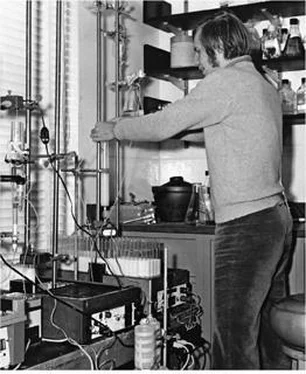James Watson - AVOID BORING PEOPLE - Lessons from a Life in Science
Здесь есть возможность читать онлайн «James Watson - AVOID BORING PEOPLE - Lessons from a Life in Science» весь текст электронной книги совершенно бесплатно (целиком полную версию без сокращений). В некоторых случаях можно слушать аудио, скачать через торрент в формате fb2 и присутствует краткое содержание. Жанр: Биографии и Мемуары. Описание произведения, (предисловие) а так же отзывы посетителей доступны на портале библиотеки ЛибКат.
- Название:AVOID BORING PEOPLE: Lessons from a Life in Science
- Автор:
- Жанр:
- Год:неизвестен
- ISBN:нет данных
- Рейтинг книги:5 / 5. Голосов: 1
-
Избранное:Добавить в избранное
- Отзывы:
-
Ваша оценка:
- 100
- 1
- 2
- 3
- 4
- 5
AVOID BORING PEOPLE: Lessons from a Life in Science: краткое содержание, описание и аннотация
Предлагаем к чтению аннотацию, описание, краткое содержание или предисловие (зависит от того, что написал сам автор книги «AVOID BORING PEOPLE: Lessons from a Life in Science»). Если вы не нашли необходимую информацию о книге — напишите в комментариях, мы постараемся отыскать её.
AVOID BORING PEOPLE: Lessons from a Life in Science — читать онлайн бесплатно полную книгу (весь текст) целиком
Ниже представлен текст книги, разбитый по страницам. Система сохранения места последней прочитанной страницы, позволяет с удобством читать онлайн бесплатно книгу «AVOID BORING PEOPLE: Lessons from a Life in Science», без необходимости каждый раз заново искать на чём Вы остановились. Поставьте закладку, и сможете в любой момент перейти на страницу, на которой закончили чтение.
Интервал:
Закладка:
At the end of July, I was happy to be able to bring my father along to the Isle of Skye, where I was to be the best man at Av Mitchison's wedding to Lorna Martin. It was my first chance to meet Av's intellectually powerful research supervisor, Peter Medawar. He came up from
London with his strong-willed wife, Jean, and fetching bright daughter, Caroline, then intending to escape from much unwanted parental dating advice by going up to Cambridge. In the middle of the reception, I had no difficulty in spiriting Caroline away for a long car ride through the wild beauty of Skye, remaining absent long enough for Peter and Jean to grow worried that Caroline and I might have found each other perfect. But she had other plans for the next few weeks. And after putting my father on a plane back to Chicago, I anticipated intersecting in Tuscany with a Radcliffe girl I knew from the off-campus house on Massachusetts Avenue, who was traveling in Europe. Several letters from the prior locales on her itinerary gave me to believe that she would greet me warmly when our paths finally crossed in Assisi. But as we looked up at the Giotto frescos on the walls of its fifteenth-century basilica, I sensed that her affections were already subscribed; I later learned she was smitten with a young classics instructor.Even before I went off to Europe, momentum was building for the appointment of a super geneticist to the biology faculty. Bagging such a star had been on Harvard's agenda since the late 1940s, when an offer failed to lure Tracy Sonneborn away from Indiana. Now the introductory course was being taught by Paul Levine, whose recent promotion to a tenured position had been a dicey matter. In so proposing him, the senior biology faculty had to emphasize his highly praised teaching, since his middling research on Drosophila was far from noteworthy. Given Bundy's known determination to prevent his out-of-date biology faculty from perpetuating their inherent mediocrity, the promotion had hints of a compromise between him and Pusey The letter from University Hall to the Biology Department stated that Levine's appointment was conditional upon the department's next tenured slot being reserved for a geneticist whose research was world-class. Initially I feared that they might somehow find a candidate who, though clever, did not yet feel it necessary to think in terms of the double helix. Fortunately, I could not have been more wrong.
The subsequent departmental committee made the Purdue University phage geneticist Seymour Benzer, already my close friend, number one on their list. Decisive was the maize geneticist Paul Mangelsdorf's highly positive reaction to Benzer's recent talk before the International
Congress of Genetics in Toronto. Within days of Seymour's coming to Harvard to talk about his fine-structure genetic map of the r2 gene of phage T4, my senior biology colleagues voted unanimously for his appointment. Seymour, of course, had been earlier apprised of the department's intentions. Paul Doty and I both told him that it was virtually impossible for any properly constituted ad hoc committee not to back his addition to the Harvard faculty.Alfred Tissières was now Bentley-less. In July he was to marry in Colorado the equally strong-willed Virginia Wachob, a girl of Scottish descent from Denver, whom he first met at Caltech during a year away from King's. Supporting both a wife and a Bentley, which soon might need a major engine overhaul, would not be possible given that Alfred's Harvard salary was slightly lower than mine. The Bentley now belonged to a much more handsomely rewarded law school professor.
With the assembling of the ad hoc committee taking longer than expected, it was early February 1958 before Seymour had his formal offer and an invitation back to Harvard to meet with Bundy Then he wanted reassurance that DNA-based biological thinking would have the continued strong support of the administration. To my distress, Seymour didn't immediately accept, implying worry at having greater teaching responsibilities than at Purdue. And so it was a great relief when Bundy happily called me early the next week with news that Seymour's letter of acceptance was on his desk.
Going off soon thereafter to the University of Illinois, as its George D. Miller Visiting Lecturer in Bacteriology, I could finally rest assured that the days of backward thinking in Harvard's Biology Department were numbered. My visit was arranged by Salva Luria, who by then had been a professor at Urbana for more than five years. My lectures on macromolecular replication and cell growth were a preview of ones I wanted to deliver later to Harvard undergraduates. Over the three weeks of my visit, I enjoyed much stimulation from the Urbana science scene. Especially enjoyable was talking with the diminutive, manic Sol Spiegelman, then also focusing much of his research on ribosomes.
Flying back to Boston on an intellectual high, I came back down to earth at Harvard with a thud. Seymour Benzer now claimed a heart
condition that forced him to reverse his decision to come. Staying in Purdue, with its almost nonexistent teaching responsibilities, would be much less taxing, and he had to think of his health. The disappointment might have been unbearable if Av Mitchison had not happened to be in residence for the spring term, giving an advanced course on immunology. To my delight, he and his new wife, Lorna, together with Alfred Tissières and I, were temporarily occupying the Dotys’ big house on Kirkland Place while the Dotys spent Paul's long-overdue sabbatical in the other Cambridge. Parked next to my MG TF beneath the Dotys’ main bedroom was Alfred's consolatory sleek new Alfa Romeo sedan.
Had it not been for Doty's occasional flights back to oversee his ever-growing lab group, my direct line to McGeorge Bundy would have been cut off when I most needed it. With virtually no warning, I learned that an ad hoc committee soon would assemble to consider simultaneously the promotions from assistant professor to tenured
associate professorship of Edward O. Wilson and myself. That I was to be considered a year prematurely was not at all the original intent of the Biology Department. Their concern primarily was Wilson, whom they needed to promote to keep him from accepting the same terms from Stanford. After undergraduate education as a naturalist in his home state of Alabama, Ed had moved north to Harvard to pursue a Ph.D. Proving his brilliance during his initial studies on ants and their behavior, he became a junior fellow, then considered the best stepping-stone to an eventual permanent position on the faculty. Since my arrival, we seldom had reason to speak: I was a midwesterner, he a southern boy; he was par excellence a naturalist, while I knew nothing about ants, having by then lost all my earlier interest in animal behavior. But the vast museums of Harvard's past glory were not to vanish, and it appeared that Wilson might very well have the intelligence and drive needed to move Harvard's evolutionary tradition into the future.Since my research achievements were already internationally noted and no one could say that I had either shirked or botched my teaching responsibilities, Paul Doty felt that fairness dictated that the Biology Department now also make up its mind as to whether it wanted me as a permanent member. Bundy happily agreed and unilaterally informed the Biology Department that he and Mr. Pusey wished to consider my appointment as well as that of Ed Wilson. With Wilson's offer from Stanford needing an answer soon, an ad hoc committee was formed even before a department vote, just before my thirtieth birthday on April 6. Through one of its members, the highly perceptive Rockefeller Foundation science executive Warren Weaver, Paul quickly learned that the verdict was thumbs up for both of us. By then Bundy had already told the Biology Department that he had President Pusey's permission to promote me as well as Wilson. So Frank Carpenter assembled his senior biology professors the next day to see whether they would concur with the ad hoc committee's decision.
Читать дальшеИнтервал:
Закладка:
Похожие книги на «AVOID BORING PEOPLE: Lessons from a Life in Science»
Представляем Вашему вниманию похожие книги на «AVOID BORING PEOPLE: Lessons from a Life in Science» списком для выбора. Мы отобрали схожую по названию и смыслу литературу в надежде предоставить читателям больше вариантов отыскать новые, интересные, ещё непрочитанные произведения.
Обсуждение, отзывы о книге «AVOID BORING PEOPLE: Lessons from a Life in Science» и просто собственные мнения читателей. Оставьте ваши комментарии, напишите, что Вы думаете о произведении, его смысле или главных героях. Укажите что конкретно понравилось, а что нет, и почему Вы так считаете.












